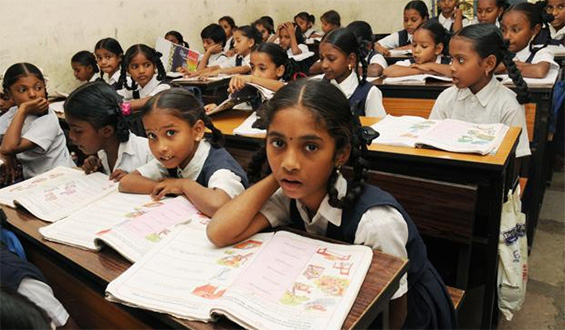 (Photo: Mint)
(Photo: Mint)
This month, the Punjab Education Department in Pakistan required urban public schools to submit documents for the schools to be affiliated under the Right to Education (RTE) Act. These guidelines have been in use for years, but private schools were not required to meet the same norms until now.
According to DEO (Elementary) Jugraj Singh, schools had a deadline of a week, and noncompliance would be punished. Schools were required to submit documents proving that they had safe buildings and potable water in addition to the school society or trust deed, school details, and a list of teachers, reports the Tribune.
450 out of the 854 private schools in the district were issued temporary affiliation.
The RTE Act was designed to guarantee disadvantaged children free education, along with textbooks, school supplies, and uniforms. Those with disabilities are also entitled to special education and support.
The RTE Act required all schools to reserve twenty-five percent of nursery-level seats to disadvantaged groups. Schools who do so are reimbursed their per-child expenditure or the actual amount the child was charged, depending on which sum is less. The law also requires schools to recruit at least one Inclusive Education Resource teacher.
According to the Punjab Free and Compulsory Education Act of 2014, every child in Pakistan has the right to education through tenth grade or informal or vocational training. Families are not responsible for paying any fee or expense for education in a school owned or controlled by the government, but parents are obligated to help their children be admitted and attend the schools.
The legislation repealed and replaced the Punjab Compulsory Primary Education Act of 1994,
However, experts say that the new policy has not allowed for the additional training that teachers will need to deal with underprivileged students, in addition to presenting local governments with a host of new responsibilities.
Dr. Mumtaz Akhter of Punjab University’s Institute of Education and Research said:
This is a good decision but authorities would have to devise a clear policy for smooth implementation of the new regulations.
We have to train teachers first for this important assignment to teach students, hailing from underprivileged families, to certain levels. We must know that only a trained teacher has abilities to put words in fresh minds of students.
Dr. Mira Phailbus, former principal of the Kinnaird College, wants a teacher training institution like the Pakistan Military Academy and the Civil Services Academy.
Education is not just to know facts but also to learn values and confidence. A major drawback in our education system is the lack of an effective teacher training mechanism.
Professor Ashok Kumar noted the inconsistency of the education system, and called for a consistent curriculum for all students, reports Muhsen Ali of the Daily Times. He said:
We have to remove historical and other errors and biases carefully from our curriculum. We need quality education for all to ensure a brighter and educated Pakistan with tolerant citizens who can think rigorously.
Blogger Asad Raza Naqvi of The Nation notes that child labor is so prevalent in the Punjab region that these policies might not bring as many children to school as legislators hoped. Additionally, he says that infrastructure improvements may have made more of a difference in the quality of education.




